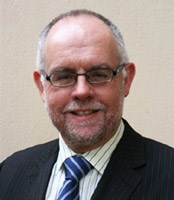AITEC roots for the promotion of Africa's creative industry

Why did AITEC Africa start the annual Broadcast, Film & Music Africa conference?
Sean Moroney:What we call the creative content industry has huge untapped potential in Africa. Creative talent and energy abounds across the continent but we need to channel this into creative activities that bring financial returns and increase income earning power.
So, we decided to develop a two-day business event that provides an in-depth technology and business briefing, focusing on the best practices across the continent and internationally. All this is to accelerate the growth of our film and broadcast industries.
You have been organising the Annual Broadcast, Film & Music Africa for the last four years. What has this forum achieved so far?
Moroney: We have exposed a large number of emerging enterprises in the sector to potential partners, suppliers, investors and customers. That is what we aim to do with each of our events.
Through this conference, you intend to nature a more vibrant creative industry in East Africa, what loopholes or weaknesses have you observed over the time?
Moroney: In East Africa in particular there is a huge unmet demand for local content. Viewers want content that they relate to their lives and aspirations. To some extent Nollywood has filled this gap but low quality series from Europe and South America are still bought by broadcasters as cheap content. So, local content development remains limited.
What are some of the appropriate solutions to these challenges?
Moroney: We need to find new business models, and subsidies to develop and promote local production initiatives. The region needs to be promoted as a creative industries destination for international and local production ventures.
This is why this year, we have timed our conference to coincide with the Zanzibar International Film Festival, taking place over the same period, to maximise the attraction for international industry stakeholders to visit the region and explore its potential.
What role do you expect international stakeholders in Africa's broadcasting and film industry like Sony, and Samsung, to play in the continent's quest for high quality content?
Moroney: Suppliers like Sony and Samsung provide world class technology that the industry needs to achieve high-quality production and broadcasts. Beyond that, they can educate their customers to achieve higher levels of excellence.
That's why we are working with Sony to hold training workshops during the conference on production quality techniques. More of this sort of training needs to be done in the region and perhaps through industry associations.
Africa is currently migrating from analogue to digital broadcasting migration; however, many countries are struggling on the road. Which markets can East Africa emulate to ensure that the migration is a success?
Moroney: I don't think any country has developed an ideal migration strategy. Different lessons can be learnt from a wide range.
Infringement of copyrights of global content developers in East Africa has persisted despite some steps by the various governments. What exactly needs to be done to deal with this problem?
Moroney: Government leadership, with consultation and input from industry stakeholders - also at a regional level. So EAC, for example, could play a role in developing standards across the region, to provide guidelines and key milestones to achieve across the region.
What challenges will the forth coming conference Annual Broadcast, Film & Music Africa address?
Moroney: We have two major focus areas: Content Development and Content Distribution. Content development faces huge challenges in terms of lack of resources and lack of capacity and investment. We will be looking at alternative or new business models that can leverage on international or regional partnerships.
And in Distribution, there are dramatic and exciting new developments in the market, including mobile broadcasting, the launch of digital, which opens up multiple distribution channels, as well as new satellite technologies, which will also spread services and drive down costs. All these developments will be covered in detail.
Apart from the Sony workshop, are there any other unique aspects to this year's conference?
Moroney: For the first time this year, we have introduced music as a conference focus area. This is a rapidly growing industry, with a huge talent pool that through convergence with broadcasting and film-making will multiply its revenue-earning potential.
This conference largely covers participants in East Africa are they plans to get the rest of Africa involved by taking it to other regions?
Moroney: The conference is definitely pan-African. It is our intention to grow it into the continent's leading annual technology and business event for the electronic media and creative content industries.
With government and industry support we can grow it into the annual must-attend event for stakeholders from throughout the continent that reinforces East Africa's status as a creative industries business and investment destination.

About Walter Wafula
Walter Wafula is a seasoned journalist who has reported for the Daily Monitor newspaper in Kampala-Uganda. He is also a contributor on Bizcommunity.com website. Email Walter at moc.oohay@tlawfaw and connect on LinkedIn.Related
Icasa boosts community radio with spare spectrum, applications now open 27 Jan 2025 Malatsi follows through on DA policy plans in withdrawal of SABC Bill 11 Nov 2024 Comms Minister steps in to keep millions of South Africans connected to SABC 8 Oct 2024 Malatsi opens nominations for Sentech board 10 Sep 2024 Court overturns Icasa's election broadcast regulations amendment 19 Apr 2024

























